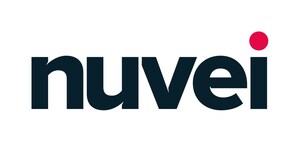Global study reveals how payment friction and missing local options are eroding airline revenues – and how orchestration can recover lost growth.
MONTREAL, Oct. 31, 2025 /PRNewswire/ -- Airlines and online travel agencies (OTAs) are losing billions each year to failed transactions and missed payment preferences. According to new research from Nuvei and Edgar, Dunn & Company (EDC), $117 billion in airline revenue is at risk in 2025 due to card declines and checkout friction.
The report, The Last Mile of Conversion: How Seamless Payments Drive Revenue from High-Intent Travelers, examines how traveler expectations are reshaping payment economics across the booking journey. Surveying more than 1,000 travelers across the US, UK, Brazil, Spain, and Hong Kong, the findings show that payments have become one of the travel industry's most critical commercial battlegrounds.
Friction costs billions
17% of travelers experience a card decline when booking online. For airlines, the consequence is immediate: 13% switch to a competitor, and 5% abandon the purchase entirely.
Checkout design compounds the loss. Nearly 60% of travelers will abandon a booking if their preferred payment method is not available, while 92% say ease of payment is critical to their booking decision.
These patterns point to a widening gap between traveler intent and conversion – and to the opportunity for airlines and OTAs to recapture significant revenue through smarter payment orchestration and localization.
Payment behavior is increasingly local
The data underscores how regional payment habits shape global outcomes.
- In Brazil, 71% of travelers prefer Pix, the country's instant payment network.
- In Hong Kong, 29% use AlipayHK for online purchases.
- In Spain, 23% choose Bizum, while in the US and UK, PayPal remains dominant with usage exceeding 40%.
Travelers also expect familiarity and flexibility. 92% want prices displayed in their local currency, and 75% prefer split payment options, yet only 22% of OTAs currently offer them.
This diversity makes clear that a single global checkout cannot meet traveler expectations. Payment strategies must reflect local systems, currencies, and consumer behavior in every market.
Orchestration as infrastructure
The research identifies payment orchestration as the most effective lever to address revenue leakage. By routing transactions intelligently across acquirers, supporting local methods, and enabling automated retries, airlines can raise approval rates by 5 to 10 percentage points.
That lift can represent the equivalent of meeting half or all of annual growth targets for some carriers. More broadly, it signals a shift in mindset: from treating payments as an operational cost to viewing them as an enabler of commercial performance.
A strategic shift for travel commerce
Travel is a high-intent, low-frequency category. Each transaction carries both immediate and long-term value, but the margin for error is narrow. A failed payment often ends the relationship entirely.
As digital adoption and real-time payments expand globally, the industry's growth will depend on how effectively airlines and OTAs can reduce friction in the last mile of conversion. Those that localize and orchestrate payments intelligently will not only protect revenue but strengthen loyalty among increasingly digital, mobile-first travelers.
Download the full whitepaper here: https://www.nuvei.com/posts/the-last-mile-of-conversion-how-seamless-payments-drive-revenue-from-high-intent-travelers or for more information about the research contact: alex.hammond@nuvei.com
Logo - https://mma.prnewswire.com/media/2263426/Nuvei_logo_Logo.jpg






Share this article